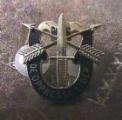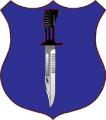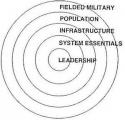Never happened! The training in Kenya might be pertinent to Afghanistan, but it is not what we term 'Mission Specific Training', it is generic field training that all light role battalions are mandated to undertake. We have never sent a unit to Kenya to acclimatise for Afghanistan, no matter how it has been reported!
Surely the best way (bearing in mind that the Karzai Government was not under threat from the Taleban as a serious contender for national power) to use foreign forces would have been to:
- Provide training assistance in order to grow capacity quickly
- Provide logistical and C2 support to enable effective use of the new capacity (especially tactical and operational mobility and communications)
- Use of SF for targeted strikes to keep the Taleban from regrouping and going on the offensive.
I agree in parts; but at what cost? This is a limited war, fought for limited aims with very limited means. Why raise a British regular unit specifically for use in Afghanistan when historically the most effective way to fight the Afghans is to raise a unit of Afghans (South Waziristan Scouts (SWS), Tochi Scouts et al)? The British Army realises that we have got things wrong on campaign continuity and that is being addressed. As part of that it has been decided that the 'across the board costs' of extending unit tour lengths or raising a unit specifically for use in theatre outweigh the tactical advantages that might be accrued - in other words it would be inefficient use of resources.
Personally I think the most efficient use of resources is the Helmandi Scouts or even better the SWS option, but I doubt that the Karzai Government would go along with that. The loan service model as used in Oman is another good model - but there appears not to be any appetite for that - perhaps they wouldn't pay as well as the Omanis!
With regards to PTSD all I can currently note is that at no time has the British Army ever exposed frontline units to extended periods of high intensity combat. Even in WW1 and WW2 formations were rotated in and out of the line in order too preserve combat effectiveness. I note too that Secretary Gates is now advocating 9 month tours in Afghanistan for the US Army with longer tour intervals inbetween.
I think having a unit in theatre permanently (perhaps raised specifically for Afghanistan) has advantages and disadvantages. It would have been extremely difficult to do 2006-2008 concurrent with TELIC due to resource constraints. My ire is focused on the slipshod thinking and appalling mismanagement that persisted from when we arrived in 2006 through to relatively recently while operating within the constraints we had been given.




 Reply With Quote
Reply With Quote












Bookmarks